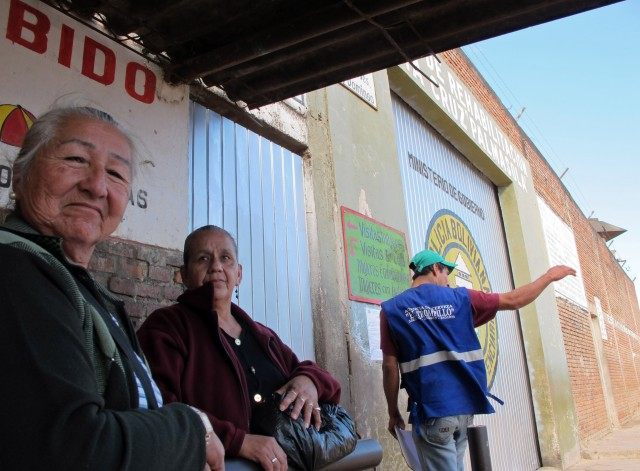SANTA CRUZ, Bolivia (AP) — Two years after 36 people died in a fierce battle between rival gangs, not much has changed inside Bolivia’s biggest prison: Inmates still run the place, it’s badly overcrowded, drugs are cheaper than on the street and money buys survival.
In short, the penitentiary that Pope Francis visits Friday for an hour is much like many of Latin America’s penal institutions.
Francis has shown a special affection for the imprisoned since being elected pope in 2013. Last Christmas, he spent two hours on his knees at a Rome prison washing the feet of inmates. At Palmasola prison, he planned to lead inmates in prayer and hear testimony.
A former inmate, U.S. businessman Jacob Ostreicher, doesn’t expect Francis to get much unvarnished truth about Palmasola, where he spent 18 months after being arrested for suspected money laundering.
“The pope is not going to get to see what’s happening in the prison,” said Ostreicher, who was released from the prison in 2012 when it was revealed that he had been extorted by a ring of prosecutors, judges and government lawyers.
Francis may get shown a Catholic church-run building where Ostreicher said destitute prisoners at least get a place to sleep. But the chickens that usually have the run of its alleys may be caged.
Ostreicher, current inmates and their relatives say Palmasola, built to run 800 people but housing 5,000, is really run by its most hardened inmates — convicted rapists and murderers .
“It’s the lifers who control the prison,” said Ostreicher. “The police officers who guard the outside of the prison push you inside the prison and you’re on your friggin’ own.”
Inside, everything has its price.
“Here corruption rules and he who has money can live well while the rest suffer jammed into huts with dirt floors,” said Sirley Maria Vargas, the mother of a 21-year-old inmate accused of homicide. “With money you can have your own room, cleaning service, cable TV, air conditioning and Internet.”
Inmates pay $1,000 for the right to a cell and $300 a month for individual cells, she said. Cellphones can be bought, and food and drugs are routinely smuggled in.
Ostreicher said a small bag of cocaine is cheaper inside than an eight-ounce bottle of water.
Bolivia’s prison regimen lets inmates roam outside their cells by day. Palmasola’s cellblocks are separated by walls and security fences.
Module I, which has an open regimen, has streets full of men, women and children, domestic animals, stores, restaurants, a gym, a Catholic and evangelical church and workshops.
Other prison sections are less hospitable, particularly Modules 3 and 4, which hold the most dangerous inmates. Module 5 houses the infirm, most with tuberculosis.
A woman jailed on fraud charges agreed to speak to The Associated Press from inside the prison but she insisted on anonymity for fear of reprisals
“The police are corrupt. You have to pay for everything here inside, and there are fights every day. Some tried to kill me with a knife two weeks ago,” she said.
There are no doctors inside.
“I had to bring in a dentist who took care of my son in his cell,” said Vargas, the mother of an inmate.
Ostreicher said that he knew five people who died of cancer while he was in the prison and that they got no medical attention whatsoever.
In August 2013, during a struggle for control of the cellblock holding Palmasola’s most violent inmates, one group attacked its rival with machetes and home-made flamethrowers. The 36 fatalities included a 1-year-old.
It was modern Bolivia’s deadliest prison riot.
The church’s national coordinator for Francis’ visit, the Rev. Aurelio Pesoa, said the pope would receive a wood carving made by inmates, hear a prisoner’s testimony and then a speech by its pastoral coordinator, the Rev. Leonardo Da Silva.
Ostreicher said he doubted the pope would be shown the section of the prison where the penniless are “wasting away,” forced to sleep in the open and scrounge for food in garbage containers.
Palmasola reflects an all-too-frequent reality in Latin American prisons.
“What’s being punished isn’t the crime but rather poverty,” said Juan Carlos Nunez, an investigator at Jubileo, a Catholic think tank.
Bolivia’s 32 prisons are built for 5,061 prisoners and hold nearly three times as many. Many are in for drug trafficking and 84 percent are awaiting trial.
___
Associated Press writer Frank Bajak contributed to this report.

COMMENTS
Please let us know if you're having issues with commenting.